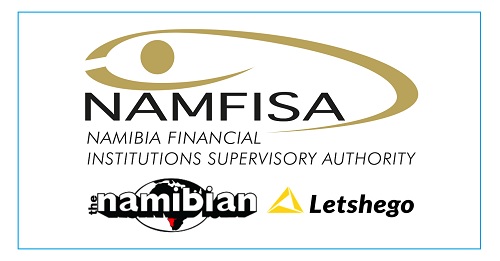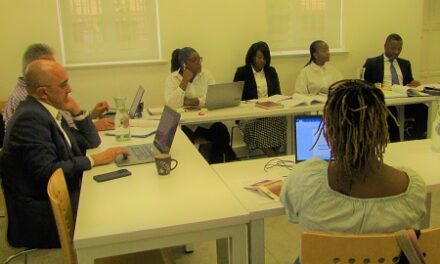By Victor Angula /
The Namibian newspaper was forced to apologise to Letshego Holdings Namibia after it published an article saying that Letshego was under investigation by NAMFISA for reckless lending.
While the error in the story may be attributed to the newspaper itself, NAMFISA seems to have contributed to it by the failure of NAMFISA to truthfully reply to the questions asked by The Namibian’s reporter.
In an article published by The Namibian on 26 September 2025, titled “Letshego under fire for ‘reckless lending,’” Letshego Holdings Namibia came under fire from commentators who asserted that Letshego has in the past caused its clients to fall into unmanageable debt and financial stress.
“Letshego has publicly acknowledged that it has been violating the Banking Institutions Act by not complying with the affordability test before issuing loans,” a commentator was quoted as saying.
“Many borrowers are in a deplorable financial state because of loans issued without proper affordability checks.”
In the same article Letshego spokesperson Josefine Nghitutukah was quoted as saying that: “At no point has Letshego issued loans without conducting the necessary affordability checks …”
NAMFISA CEO Mr Kenneth Matomola was quoted in the article as saying, “Please be advised that this specific matter is currently under investigation. Should our review find it necessary, we will take appropriate enforcement action.”
However Letshego did not take kindly to the article.
In a letter published on the front page of The Namibian of 30 September 2025 Letshego Holdings Namibia chief executive officer Ms Ester Kali stated that The Namibian’s article implied that Letshego was under investigation by NAMFISA “for reckless lending practices and suggests that we have not been conducting affordability assessments in our lending processes.
“These claims are factually incorrect and misrepresent the reality of our operations …”
At the bottom of the letter of Ms Kali, The Namibian published a “RETRACTION AND APOLOGY” stating that: “The Namibian hereby retract the allegations that Letshego is under fire for reckless lending.
“We failed to uphold the basic standards of journalism by not verifying the information to sufficiently prove the allegations of reckless lending. This incident serves as a reminder that as journalists we must never drop our guard, as independent journalism carries a responsibility to be fair, accurate and accountable.
“We regret this oversight and apologise for any reputational harm this may have caused to Letshego.”
When Omutumwa posed a question to NAMFISA as to whether NAMFISA’s CEO Mr Kenneth Matomola did indeed state as quoted by The Namibian that “this specific matter is currently under investigation” and for NAMFISA to be specific as to who is being investigated, NAMFISA instead responded by sharing the questions which had been sent to them by the reporter of The Namibian.
And it shows that NAMFISA failed to respond to the questions posed by The Namibian, but did imply that there was an investigation taking place.
Below are the questions and answers exchanged between The Namibian and NAMFISA before the “Letshego under fire for ‘reckless lending’” article was published:
THE NAMIBIAN: Letshego has publicly admitted to not complying with affordability tests. Has NAMFISA taken regulatory or enforcement action against the lender?
NAMFISA: NAMFISA supervises all registered microlenders, including Letshego, in accordance with the Microlending Act, 2018 (Act No. 7 of 2018). As part of our standard supervisory process, we require regular submission of compliance returns and also initiate investigations based on reports of potential non-compliance.
Please be advised that this specific matter is currently under investigation. Should our review find it necessary, we will take appropriate enforcement action.
Our primary objective remains to ensure strict adherence to the regulatory framework and maintain the integrity of the financial sector.
THE NAMIBIAN: Under the Consumer Protection Act and the Banking Institutions Act, lenders are required to conduct affordability checks. What steps has NAMFISA taken to protect consumers from reckless lending practices, especially from Letshego?
NAMFISA: While the Consumer Protection Bill is not yet law, and the Banking Institutions Act falls outside its scope, NAMFISA holds significant authority under the Microlending Act, 2018 (Act No. 7 of 2018) to protect consumers.
Under this Act, NAMFISA supervises the microlending sector to enforce crucial consumer safeguards, particularly by ensuring microlenders conduct thorough affordability assessments and avoid reckless lending.
Sections 23(1)(b) and 23(4)(a) of the Act legally mandate these assessments. Failure to comply is an offence, subjecting microlenders to penalties, including: • A fine not exceeding N$500,000,
- Imprisonment for a period not exceeding five years, • Or both.
NAMFISA is committed to enforcing these provisions to ensure all microlenders operate within the regulatory framework.
THE NAMIBIAN: Does NAMFISA consider the failure to enforce affordability checks a violation of statutory duty? If so, will there be punitive or corrective action taken?
NAMFISA: Please refer to the answer above.
THE NAMIBIAN: Any Other information from NAMFISA?
NAMFISA: NAMFISA is pleased to inform the public that the Consumer Credit Bill (CCB) is at an advanced legislative stage, awaiting final approval to be tabled in Parliament and become law.
The primary objective of the CCB is to establish a framework for fair, transparent, and responsible market conduct within the consumer credit sector, with a strong emphasis on consumer protection.
To achieve this, the Bill incorporates comprehensive provisions, including requirements for consumer disclosures and the use of plain language, the prescription of specific charges and caps on interest rates, fees, and other costs.
Furthermore, the legislation directly tackles issues of over-indebtedness and reckless lending practices while establishing clear criteria for identifying unfair terms in credit agreements.
Consumers who are aggrieved by a non-bank financial institution may lodge a complaint without charge by completing a form at our offices or on our website. It is important to emphasize that NAMFISA’s authority extends only to institutions that are registered with NAMFISA and operate within Namibia.
In the photo: Namibia Financial Institutions Supervisory Authority (NAMFISA), The Namibian Newspaper, and Letshego Holdings Namibia.







